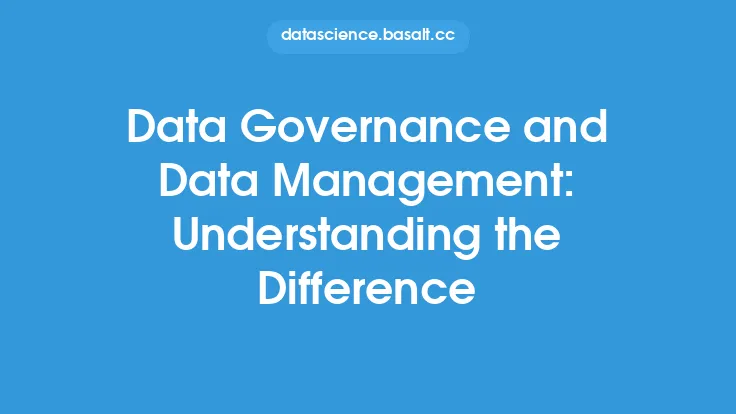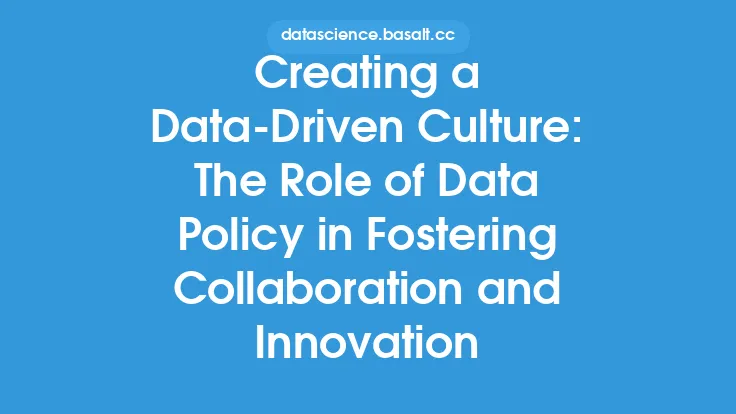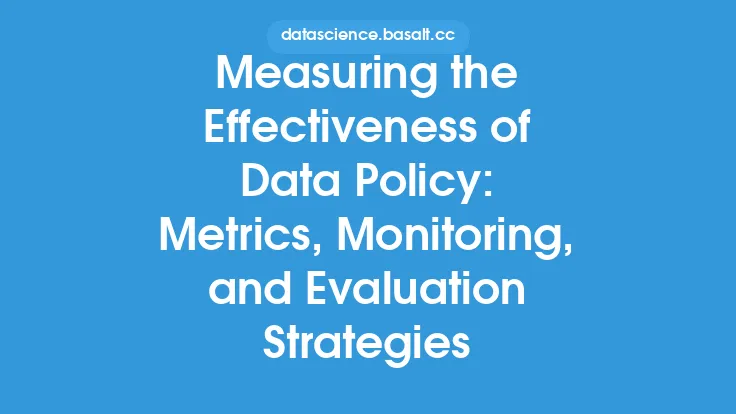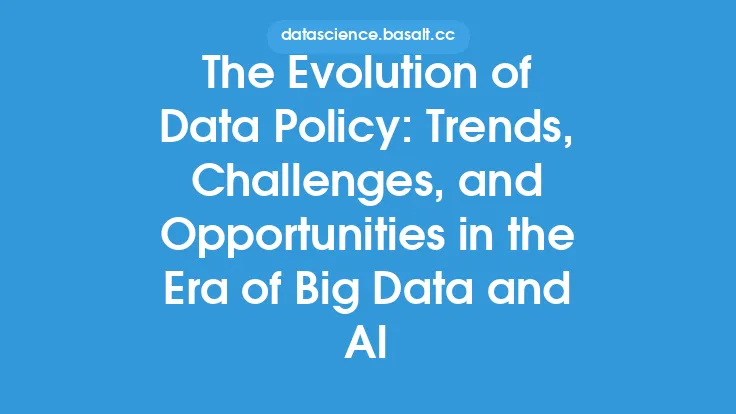Data policy and data governance are two interconnected concepts that play a crucial role in ensuring the effective management and utilization of data within an organization. While data policy provides the framework for data management, data governance refers to the overall management structure and processes that ensure the quality, security, and compliance of data. In this article, we will delve into the interplay and interdependencies between data policy and data governance, exploring how they work together to support data-driven decision-making and drive business success.
Introduction to Data Policy
Data policy refers to the set of rules, guidelines, and procedures that govern the management of data within an organization. It outlines the principles, standards, and best practices for data collection, storage, processing, and dissemination. A well-defined data policy ensures that data is accurate, complete, and consistent, and that it is used in a way that is compliant with regulatory requirements and organizational standards. Data policy also provides a framework for data security, access control, and data retention, helping to protect sensitive information and prevent data breaches.
Data Governance: A Broader Perspective
Data governance is a broader concept that encompasses the overall management structure and processes that ensure the quality, security, and compliance of data. It involves the establishment of policies, procedures, and standards for data management, as well as the assignment of roles and responsibilities for data stewardship. Data governance also includes the monitoring and enforcement of data policies, ensuring that data is managed in a way that is consistent with organizational goals and objectives. Effective data governance requires a collaborative approach, involving stakeholders from across the organization, including IT, business units, and compliance teams.
Interplay between Data Policy and Data Governance
The interplay between data policy and data governance is critical to ensuring the effective management and utilization of data. Data policy provides the framework for data management, while data governance provides the structure and processes for implementing and enforcing that framework. Together, they ensure that data is managed in a way that is consistent with organizational goals and objectives, and that it is used to drive business success. The interplay between data policy and data governance can be seen in several key areas, including data quality, data security, and compliance.
Data Quality and Integrity
Data quality and integrity are critical components of both data policy and data governance. Data policy provides the guidelines and standards for ensuring data accuracy, completeness, and consistency, while data governance ensures that those standards are enforced and monitored. Effective data governance involves the establishment of data quality metrics and monitoring processes, ensuring that data is accurate and reliable. This, in turn, supports data-driven decision-making, enabling organizations to make informed decisions based on high-quality data.
Data Security and Access Control
Data security and access control are also critical components of both data policy and data governance. Data policy provides the guidelines and standards for ensuring data security and access control, while data governance ensures that those standards are enforced and monitored. Effective data governance involves the establishment of access control processes, ensuring that sensitive data is only accessible to authorized personnel. This, in turn, helps to prevent data breaches and protect sensitive information.
Compliance and Regulatory Requirements
Compliance and regulatory requirements are a key consideration for both data policy and data governance. Data policy provides the framework for ensuring compliance with regulatory requirements, while data governance ensures that those requirements are enforced and monitored. Effective data governance involves the establishment of compliance processes, ensuring that data is managed in a way that is consistent with regulatory requirements. This, in turn, helps to mitigate the risk of non-compliance and associated penalties.
Technical Implementation of Data Policy and Governance
The technical implementation of data policy and governance involves the use of various tools and technologies, including data management software, data governance platforms, and data security solutions. These tools enable organizations to implement and enforce data policies, monitor data quality and security, and ensure compliance with regulatory requirements. They also provide a framework for data stewardship, enabling organizations to assign roles and responsibilities for data management and ensure that data is managed in a way that is consistent with organizational goals and objectives.
Best Practices for Data Policy and Governance
Best practices for data policy and governance involve the establishment of a collaborative approach, involving stakeholders from across the organization. This includes the development of a comprehensive data policy, the establishment of a data governance structure, and the implementation of data quality and security processes. It also involves the monitoring and enforcement of data policies, ensuring that data is managed in a way that is consistent with organizational goals and objectives. Additionally, organizations should regularly review and update their data policy and governance processes, ensuring that they remain relevant and effective in a rapidly changing data landscape.
Conclusion
In conclusion, data policy and data governance are two interconnected concepts that play a crucial role in ensuring the effective management and utilization of data within an organization. The interplay between data policy and data governance is critical to ensuring the quality, security, and compliance of data, and supporting data-driven decision-making. By understanding the interdependencies between data policy and data governance, organizations can develop a comprehensive approach to data management, one that ensures the effective use of data to drive business success.





